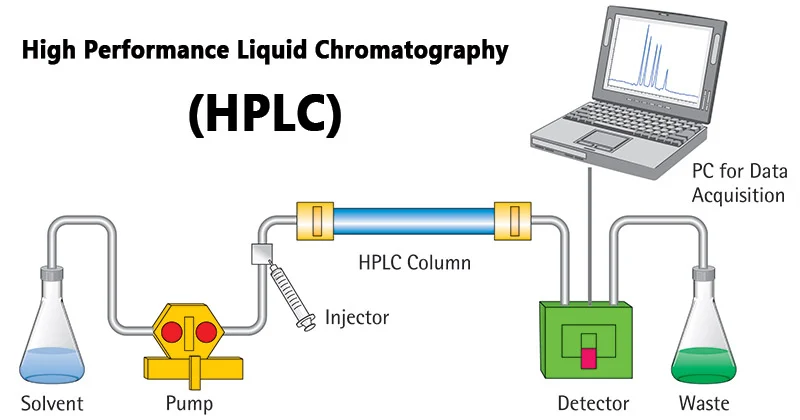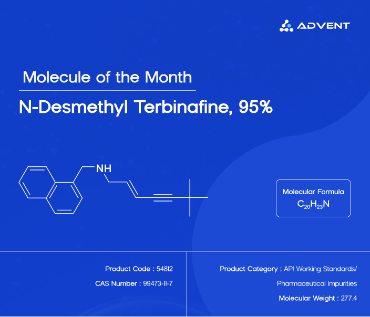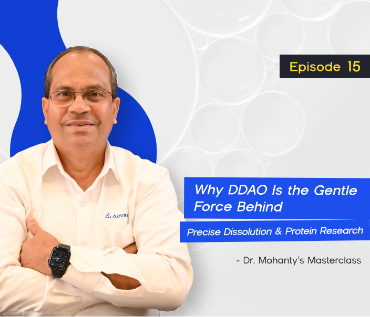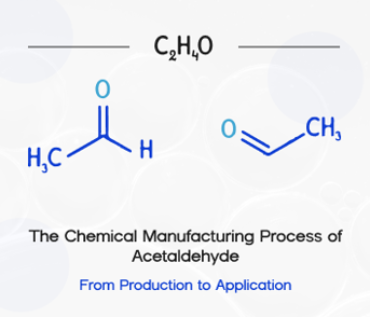Yesterday, when I got undersaible peaks in my chromatogram, I was trying to figure out the source of these unwanted peaks. After a sleepless night, I figured out that the solvent was the problem. The mobile phase was not HPLC-grade solvent!
In this article, we not only underscore the basics of the HPLC but also discuss several HPLC-grade solvents and their role in the HPLC analysis.
What is HPLC Analysis?
HPLC is a chromatographic method to separate the components of a sample mixture using a liquid mobile phase and a solid stationary phase. The mobile phase carries the sample through a column packed with the stationary phase under high pressure. This technique is used to separate compounds based on their interaction with the stationary phase, driven by differences in polarity, charge, or size.
An HPLC is a complex system with several components.
What are the Key Components of an HPLC System?
The key components of an HPLC system are:
Solvent Reservoirs: It stores the mobile phase. This reservoir typically contains a mixture of water, organic solvents, or buffers.
Pump: A pump is used to deliver the mobile phase at a consistent high pressure to ensure accurate and reproducible flow rates.
Injector: An injector is used to introduce the sample into the mobile phase. An Automated system helps enhance precision and repeatability.
Column: A chromatographic column contains the stationary phase, which is often packed with silica or polymer particles.
Detector: A detector is a device to identify and quantify separated components. Mostly, UV-Vis, fluorescence and mass spectrometry are used to detect molecules in the mixture.
Data System: A Data system is required to convert detector signals into chromatograms, to obtain visual insights into the composition of the sample.
Since HPLC is a highly versatile method, it enables analysis of a vast range of substances, from small organic molecules to large biomolecules. However, the accuracy of the analysis is highly dependent on the quality of the mobile phase solvents.
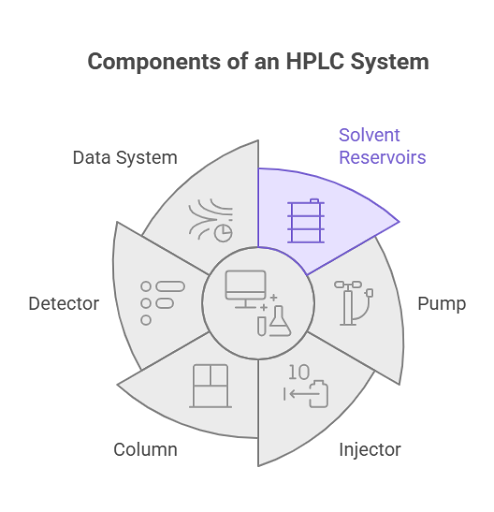
What is the role of HPLC-Grade Solvents?
HPLC-grade solvents constitute the mobile phase and are fundamental to the chromatographic process. They influence the separation, retention times, and detection of analytes, impacting the overall efficiency and reliability of the analysis.
Why High-Quality Solvents Matter?
Purity: If the solvent is not highly pure, the impurities can cause baseline noise, ghost peaks, and inconsistent results.
UV Transparency: For UV-Vis detection, the solvents used in HPLC must not absorb light in detection wavelengths and allow accurate analyte measurement.
Reproducibility: It is crucial that the solvent produces consistent results across batches and ensures that analyses can be repeated with reliable results.
Instrument Longevity: When you use high-quality HPLC-grade solvents, they reduce the risk of column clogging and pump damage, thus protecting the sensitive instrumentation.
Regulatory Compliance: The solvents that you use for HPLC must meet stringent pharmacopeial standards (USP, EP, etc.) to ensure data reliability for regulatory submissions.
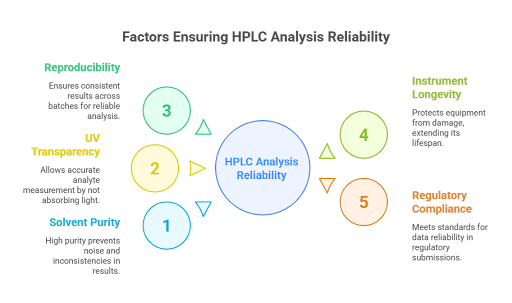
Explore Advent’s various grades of HPLC solvent list here.
What are the types of HPLC Techniques and the Solvents Used in HPLC?
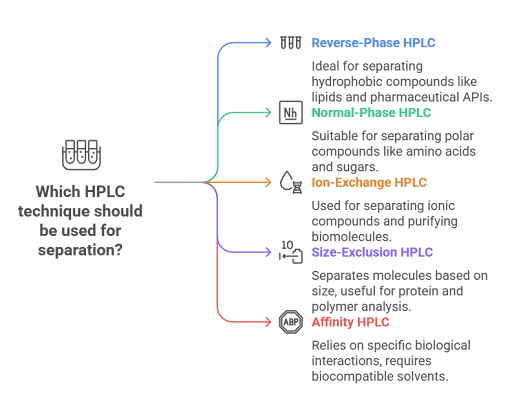
Different HPLC techniques require specific solvent properties to achieve optimal separation:
Reverse-Phase HPLC (RP-HPLC): It is one of the most commonly used techniques for separating solutes. Its stationary phase is non-polar in nature, while the mobile phase is polar, for instance, water and methanol. RP-HPLC is suitable for separating hydrophobic compounds like lipids and pharmaceutical APIs.
Normal-Phase HPLC (NP-HPLC): In this chromatographic technique, the stationary phase is polar and the mobile phase is non-polar. It is an ideal technique to separate amino acids and sugars.
Ion-Exchange HPLC: It helps separate ionic compounds using charged stationary phases. An Ion-Exchange HPLC is often used to isolate and purify biomolecules like peptides and proteins.
Size-Exclusion HPLC (SEC): As the name suggests, this technique separates molecules based on size. The larger molecules elute first. This method of separation and purification is commonly applied to protein and polymer analysis.
Affinity HPLC: Affinity chromatographic technique relies on specific biological interactions, such as antigen-antibody binding. For this technique, solvents with high biocompatibility are required.
Why Advent is the Trusted Choice for HPLC-Grade Solvents?
Advent is a leader in the production of fine and specialty chemicals, including HPLC-grade solvents. Here’s why researchers and industries worldwide rely on Advent:
State-of-the-Art Facilities: At Advent, we have cGMP-compliant and FDA-approved facilities and advanced analytical instruments.
Uncompromising Quality Standards: Our strict control on quality ensures all the solvents meet pharmacopeial standards like USP and EP.
Diverse Product Portfolio: We have more than 3000 products in our bucket. These products include HPLC-grade solvents, GC standards, and pharmacopeia-grade chemicals. Besides this, we offer tailored solutions for your specific chromatographic needs.
Sustainability and Innovation: With the growing awareness of sustainable practices, we focus on constantly innovating the process and the products.
Customer-Centric Approach: Our team of experts is available all around the clock to guide you for solvent selecting and applying solvents. We have a dedicated support team to address all your queries.
Whether your focus is on pharmaceutical formulations, environmental studies, or innovative chemical development, Advent is your trusted partner for superior chromatographic performance.
For more information or to explore Advent’s comprehensive product range, visit Advent.
